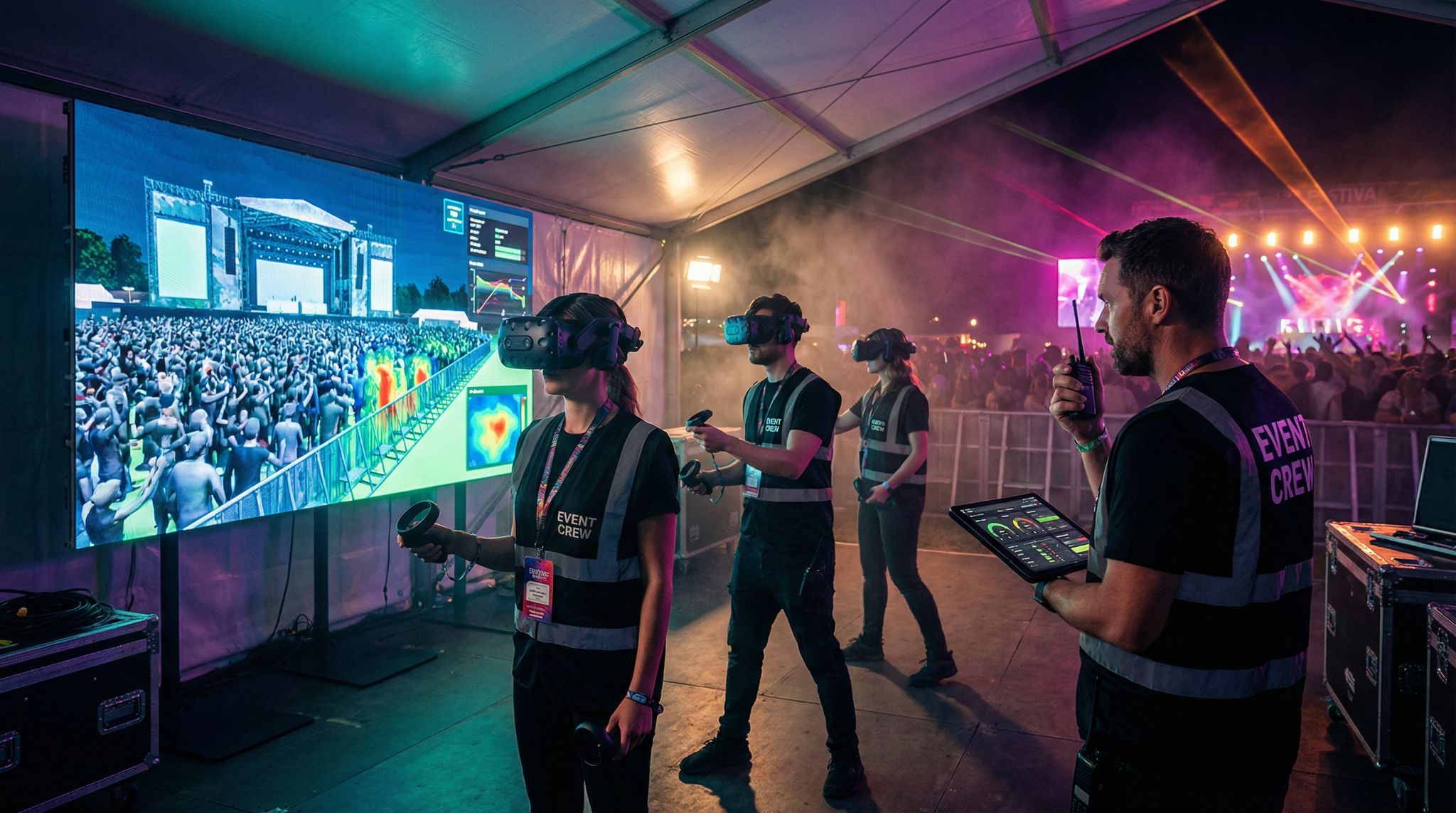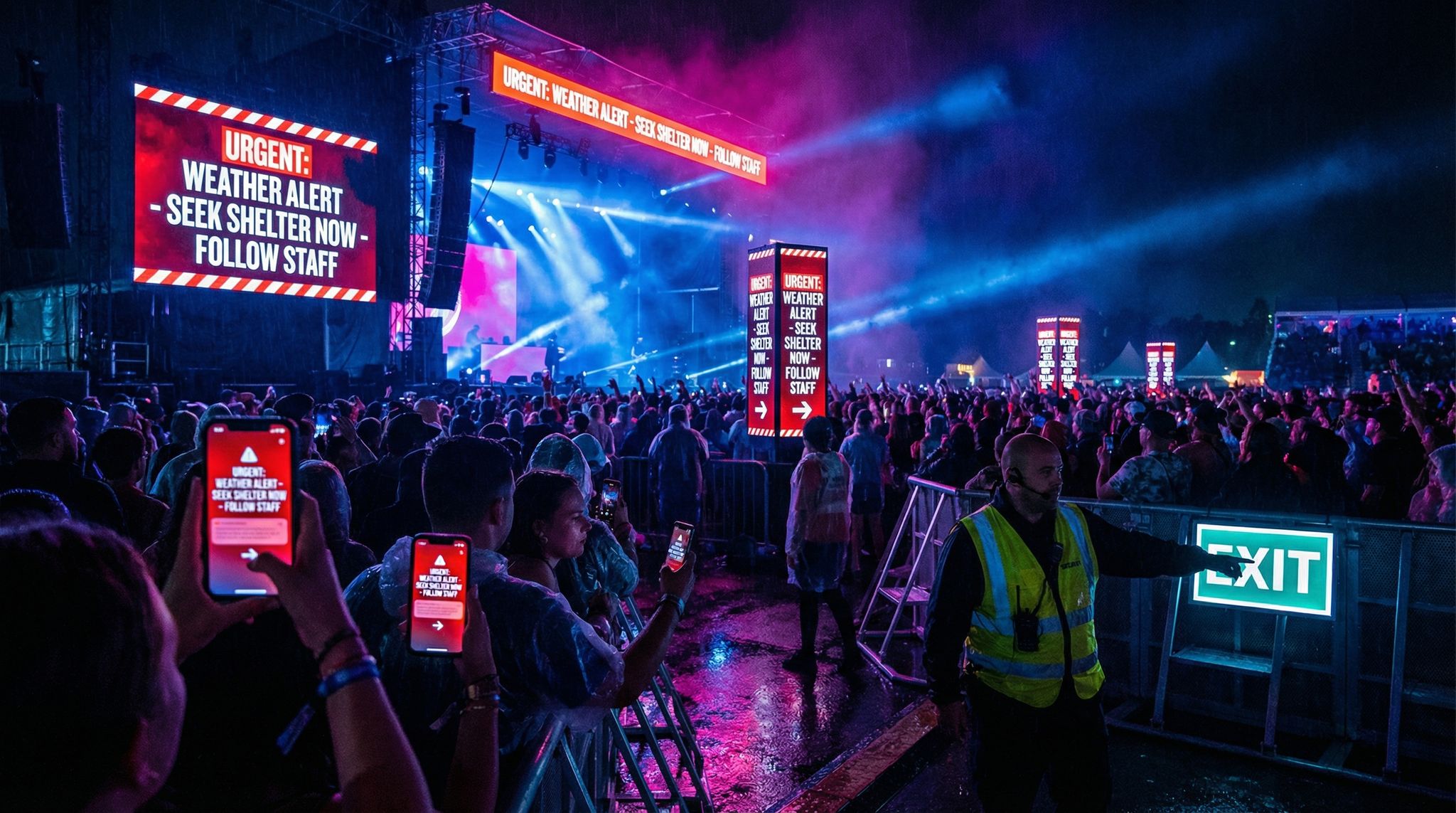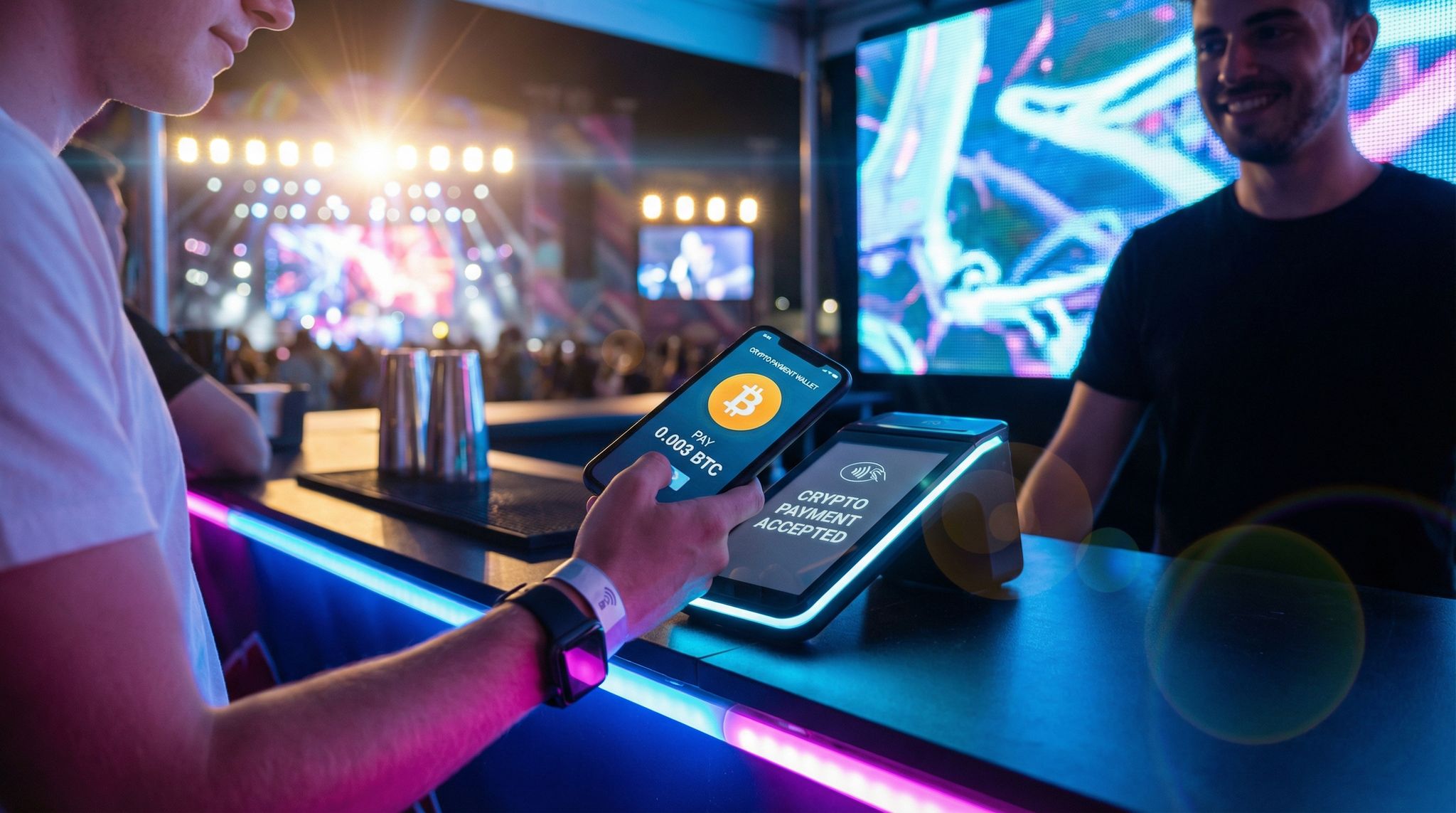Ticket scalping, the act of reselling event tickets at inflated prices, has long been a thorn in the side of event organizers, fans, and venues alike. In 2025, advancements in technology are playing a crucial role in combating this growing problem. As the demand for live events such as concerts, sporting events, and theater performances continues to rise, ticket scalping remains a serious concern. However, with emerging technologies, there are now more tools than ever to fight against this practice.
In this article, we’ll explore the key technological trends and tips that are helping to curb ticket scalping in 2025.
AI-Powered Anti Ticket Scalping Technology 2025: Algorithms

In 2025, artificial intelligence (AI) is being employed to detect and prevent scalping attempts. AI algorithms can now analyze patterns in ticket purchases in real time, identifying suspicious buying behavior like bulk purchases made by bots or multiple accounts.
For instance, many event platforms are utilizing machine learning to identify and block bots that buy tickets in bulk within seconds of a sale going live. These systems can flag accounts that display abnormal purchasing patterns and automatically implement measures to limit the amount of tickets any one individual can buy.
The integration of AI also helps identify reselling activity on secondary markets, further preventing inflated prices from creeping in. By proactively flagging and removing listings that violate policies, the systems discourage scalpers from reselling event tickets using automated systems to make a profit.
The Economic Impact of Ticket Scalping
Ticket scalping has a significant economic impact on the ticket resale market. The practice of reselling tickets at inflated prices can lead to a loss of revenue for event organizers and a negative impact on the overall customer experience. Understanding the economic impact of ticket scalping is essential for event organizers to develop effective strategies to combat this issue.
Ready to Sell Tickets?
Create professional event pages with built-in payment processing, marketing tools, and real-time analytics.
When scalpers resell tickets at inflated prices, it not only affects the affordability of tickets but also the reputation of the event. Fans who are unable to purchase tickets at face value may feel alienated, leading to a decrease in customer loyalty and future ticket sales. Additionally, the revenue that could have gone to event organizers and artists is instead pocketed by scalpers, reducing the financial benefits for those who actually create and host the events.
The secondary ticket market, driven by scalping, can also distort the perceived value of tickets. When prices are artificially inflated, it can create a false sense of scarcity and urgency, further complicating the ticket purchasing process for genuine fans. By addressing the economic impact of ticket scalping, event organizers can work towards creating a more equitable and sustainable ticketing industry.
Advanced Detection and Monitoring Systems
Advanced detection and monitoring systems are essential for event organizers to combat ticket scalping. These systems use artificial intelligence and machine learning to identify suspicious purchasing patterns and resale activity. Implementing these systems can help event organizers to prevent ticket scalping and ensure that tickets are sold to genuine fans.
AI-powered algorithms can analyze real-time data to detect anomalies in the ticket purchase process. For example, if a single account attempts to buy an unusually large number of tickets or if multiple accounts are linked to the same IP address, these systems can flag such activities as suspicious. By continuously monitoring ticket purchases, these advanced systems can quickly identify and block potential scalpers.
Moreover, these technologies can track resale activities on secondary ticket markets, ensuring that tickets are not being sold at inflated prices. By integrating these advanced detection and monitoring systems, event organizers can create a more secure and fair ticketing environment, ultimately benefiting genuine fans and maintaining the integrity of ticket sales.
Predictive Analytics and Machine Learning
Predictive analytics and machine learning are powerful tools for event organizers to combat ticket scalping. These technologies can analyze vast amounts of data to identify patterns and anomalies, allowing event organizers to detect and prevent ticket scalping. Implementing predictive analytics and machine learning can help event organizers to ensure that tickets are sold to genuine fans and to prevent inflated ticket prices.
Grow Your Events
Leverage referral marketing, social sharing incentives, and audience insights to sell more tickets.
By leveraging predictive analytics, event organizers can forecast demand for tickets and adjust their strategies accordingly. For instance, if data indicates a high likelihood of scalping activity for a particular event, organizers can implement additional security measures or adjust ticket release strategies to mitigate the risk. Machine learning models can continuously learn from new data, improving their accuracy in detecting scalping attempts over time.
These technologies also enable event organizers to personalize the ticket purchasing process, offering dynamic pricing models that reflect real-time demand. This not only helps in optimizing revenue but also in making it less profitable for scalpers to resell tickets at higher prices. By adopting predictive analytics and machine learning, event organizers can stay ahead of scalpers and ensure a fairer ticketing process for all.
Implementing a Multi-Layered Fraud Prevention Strategy
Implementing a multi-layered fraud prevention strategy is essential for event organizers to combat ticket scalping. This strategy should include a combination of advanced detection and monitoring systems, predictive analytics and machine learning, and clear policies and customer education. By implementing a multi-layered fraud prevention strategy, event organizers can ensure that tickets are sold to genuine fans and prevent inflated ticket prices.
A comprehensive fraud prevention strategy involves multiple layers of security and monitoring. Advanced detection systems can identify and block suspicious activities in real-time, while predictive analytics can forecast potential scalping threats. Clear policies, such as limiting the number of tickets per purchase and requiring verification for high-demand events, can further deter scalpers.
Customer education is also a critical component of this strategy. By informing fans about the risks of buying from unauthorized sources and the benefits of purchasing through official channels, event organizers can reduce the demand for scalped tickets. Educational campaigns can include tips on how to spot fake tickets and the importance of using verified resale platforms.
By combining these elements into a cohesive strategy, event organizers can create a robust defense against ticket scalping, ensuring that tickets are accessible to genuine fans and maintaining fair ticket prices.
Also Read: Ticketing Platforms for Anti Scalping: A Comprehensive Guide for Live Event Organizers
Blockchain Technology for Transparent Ticketing
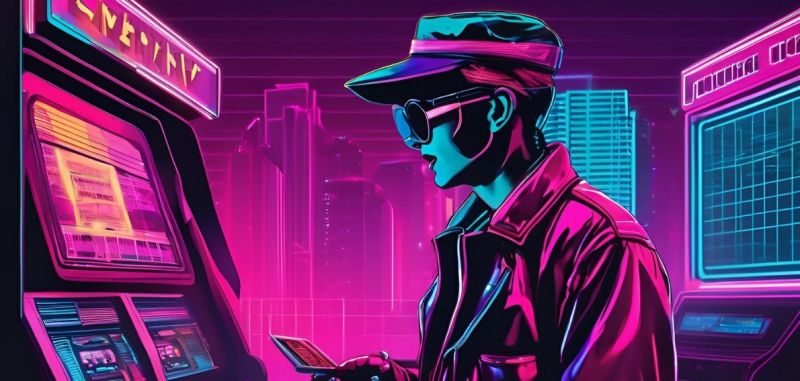
Blockchain has emerged as a game-changer for ticketing systems. In 2025, blockchain technology is being widely adopted to ensure secure and transparent transactions for event tickets. With blockchain, each ticket can be tracked from the initial sale to its resale, making it easier to detect fraudulent activities or inflated prices.
Smart contracts, which automatically execute transactions once certain conditions are met, can be embedded in ticket sales, allowing event organizers to set rules on resale prices. For example, an event might cap the resale price at the original value or allow only verified sellers to resell tickets. Blockchain’s decentralized nature also makes it harder for scalpers to manipulate the system, as every transaction is visible on a public ledger. Blockchain ensures transparency in ticket resale platforms, providing a secure environment for buying and reselling tickets.
Additionally, the use of digital wallets to store blockchain-based tickets reduces the likelihood of counterfeit tickets, as they are unique, encrypted, and can only be accessed by authorized parties.
Dynamic Pricing Models

One of the most effective ways to combat ticket scalping is through dynamic pricing. This strategy involves adjusting ticket prices in real-time based on demand, much like how airlines and hotels price their services. With the help of advanced algorithms, event organizers can adjust ticket prices to ensure they remain within reasonable limits, reducing the incentive for scalpers to buy in bulk and resell at higher prices.
By using machine learning to predict demand patterns and adjust ticket pricing accordingly, event organizers can optimize revenue while offering fans the best possible prices. These systems allow for dynamic pricing models that reflect true market demand, making it harder for scalpers to benefit from manipulating the price outside of the normal range.
Verified Fan Programs

Many ticketing platforms have introduced “Verified Fan” programs, which require individuals to register and undergo a verification process before being allowed to purchase tickets. These programs aim to create a more equitable ticket distribution system by ensuring that tickets go to real fans rather than scalpers.
Fans can sign up in advance for a chance to buy tickets for high-demand events. The system then randomly selects verified fans to access ticket sales, reducing the likelihood of scalpers taking advantage of the system. Some platforms even go a step further, using biometric authentication or multi-factor verification to ensure that only real fans can purchase tickets.
By limiting access to ticket sales through these verified fan programs, event organizers can drastically reduce the number of scalper purchases and ensure that tickets are distributed to genuine attendees.
Mobile-First Ticketing Solutions

The rise of mobile-first ticketing systems has also contributed to the fight against scalping. Digital tickets that are linked to a fan’s personal profile are less likely to be resold on the secondary market. In addition, many mobile ticketing apps now incorporate features such as seat selection, QR codes, and facial recognition for event entry, making it harder for scalpers to resell counterfeit or unauthorized tickets.
Mobile ticketing apps have also enabled features like “transfer restrictions,” where tickets can only be transferred or resold to friends or family members, often for face value. The ability to personalize the transfer process ensures that tickets are passed along to genuine attendees rather than scalpers trying to make a profit.
Anti-Bot Technology

One of the most notorious methods used by ticket scalpers is the deployment of bots to buy tickets faster than human buyers. These bots can bypass security measures, snatching up tickets in milliseconds before most fans even have a chance to click “buy.”
In 2025, there have been significant advancements in anti-bot technology. Many event organizers and ticket platforms now implement CAPTCHA systems, device fingerprinting, and behavior analysis to thwart bot attacks. Some solutions analyze factors like mouse movement, keystrokes, and IP addresses to determine whether a user is a human or a bot. By incorporating these anti-bot technologies, ticket platforms can greatly reduce the number of automated purchases made by scalpers.
Also Read: Anti Scalping for Event Success: 7 Practices To Boost Your Success
Partnerships with Social Media and Payment Platforms

Social media platforms and payment services are increasingly playing a role in the fight against scalping. In 2025, platforms like Facebook, Instagram, and PayPal are collaborating with ticketing companies to offer more secure, transparent, and user-friendly ways to purchase and transfer tickets.
For instance, PayPal and other digital wallets can track transactions and automatically flag suspicious resell activities. Social media platforms, where a lot of illegal reselling takes place, have implemented ticketing integrations that connect to official event ticketing services, ensuring that fans are purchasing tickets from authorized sellers.
Additionally, social media is being leveraged to promote “official resell” channels, providing a more secure way for fans to buy tickets from other fans at fair prices rather than turning to third-party resellers.
Consumer Education

Finally, consumer awareness is a critical component in the fight against ticket scalping. In 2025, event organizers and ticketing platforms are investing more in educating consumers about the risks of buying tickets from unauthorized sources. By educating the public on how to spot fake tickets, the risks of buying from scalpers, and the benefits of official resale channels, ticket buyers are empowered to make better decisions and avoid falling victim to fraud.
Educational campaigns and website alerts have become common tools in helping people understand the dangers of buying from unofficial resellers. As more people become informed, scalpers will find it more difficult to profit from inflated ticket prices.
Also Read: Anti Scalping for Event Management: Why These Measures Are Essential – A Complete Guide
Conclusion: The Road Ahead
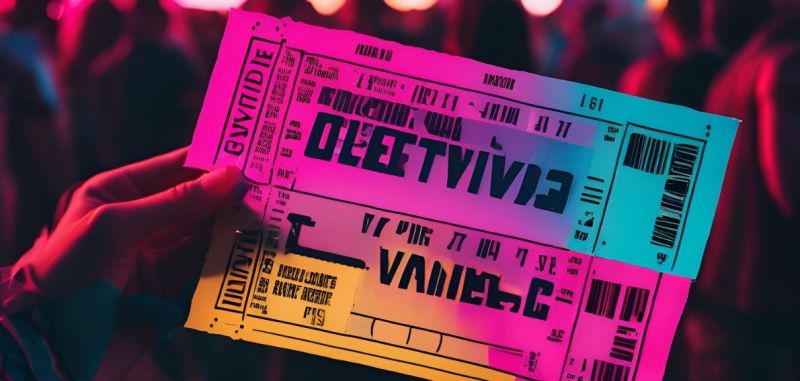
While ticket scalping remains a challenge, the innovations in technology available in 2025 are providing event organizers, venues, and fans with powerful tools to fight back. With AI, blockchain, dynamic pricing, mobile solutions, and stronger consumer protections, the landscape of ticket sales is becoming more transparent and fairer for all.
As technology continues to evolve, so will the strategies to curb ticket scalping. By staying informed about the latest trends and implementing these tips, fans can ensure they get a fair shot at purchasing tickets, and scalpers may find it harder to exploit the system for financial gain. The battle against ticket scalping is far from over, but technology is undoubtedly on the side of the fans.
Frequently Asked Questions
How is AI being used to combat ticket scalping in 2025?
Artificial intelligence plays a crucial role in detecting and preventing scalping through real-time analysis of ticket purchase patterns. AI algorithms can identify suspicious buying behavior, such as bulk purchases made by bots or multiple accounts from the same source. The systems automatically flag abnormal purchasing patterns and implement restrictions on ticket quantities per buyer. Additionally, AI monitors secondary markets to identify and remove listings that violate pricing policies. Machine learning capabilities allow these systems to continuously improve their detection accuracy, making it increasingly difficult for scalpers to circumvent security measures.
What role does blockchain technology play in preventing ticket scalping?
Blockchain technology has revolutionized ticketing systems by enabling secure and transparent transactions. Each ticket can be tracked from initial sale through any resales on a public ledger, making it easier to detect fraudulent activities and price inflation. Smart contracts embedded in ticket sales automatically enforce rules on resale prices and verify seller authenticity. The decentralized nature of blockchain prevents system manipulation, while digital wallets storing blockchain-based tickets reduce counterfeit risks. This technology ensures complete transparency in ticket resale platforms and creates a secure environment for legitimate transactions.
How do Verified Fan programs help protect against scalping?
Verified Fan programs require potential buyers to register and complete a verification process before accessing ticket sales. These systems randomly select verified fans for ticket purchase opportunities, significantly reducing scalper infiltration. The programs often implement advanced security measures, including biometric authentication and multi-factor verification, to ensure only genuine fans can buy tickets. By controlling access to ticket sales through this pre-verification process, event organizers can effectively limit scalper purchases and ensure fairer ticket distribution to actual event attendees.
What are dynamic pricing models, and how do they deter scalpers?
Dynamic pricing models adjust ticket prices in real-time based on market demand, similar to airline and hotel pricing strategies. Advanced algorithms analyze demand patterns to optimize pricing, ensuring tickets remain within reasonable limits while maximizing revenue for event organizers. This approach reduces scalpers’ profit potential by eliminating the gap between initial ticket prices and what consumers are willing to pay. Machine learning helps predict demand patterns and adjust prices accordingly, making it more difficult for scalpers to manipulate prices outside the natural market range.
How does mobile-first ticketing help prevent scalping?
Mobile-first ticketing systems link digital tickets to individual user profiles, making unauthorized resale more difficult. These systems incorporate advanced features such as QR codes, facial recognition, and seat selection directly within the app. Transfer restrictions allow tickets to be passed only to friends or family members, often at face value, ensuring tickets reach genuine attendees rather than scalpers. The personalized nature of mobile tickets, combined with security features, creates a more controlled and secure ticket distribution system that significantly reduces scalping opportunities.
What anti-bot technologies are being used to fight scalpers in 2025?
Modern anti-bot technologies employ multiple sophisticated methods to prevent automated ticket purchases. These include advanced CAPTCHA systems, device fingerprinting, and behavioral analysis that examines factors like mouse movement, keystrokes, and IP addresses to distinguish between human users and bots. The technology can detect and block automated purchases within milliseconds, preventing bots from snatching up large quantities of tickets before genuine fans can access them. These systems constantly evolve to counter increasingly sophisticated bot attacks.
You May Also Like:
OnGround Event Technology For Music Concerts to Know About in 2025
Optimizing Music Event Page SEO: How to Maximize Search Engine Visibility
Music Event Technology Trends 2025: Innovations Shaping the Future of Live Music Experiences



